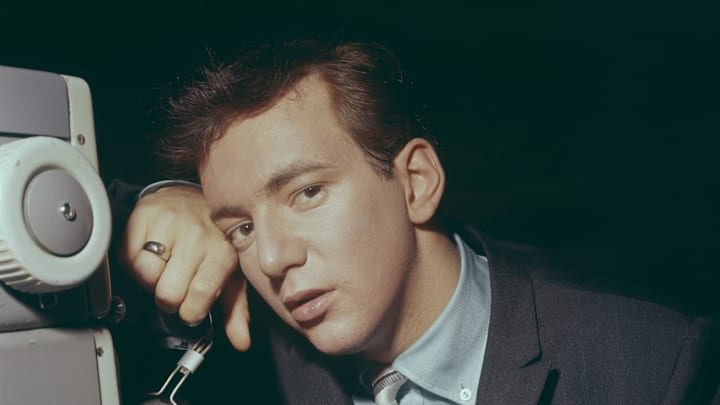No. 8 - Gunfighter Ballads and Trail Songs – Marty Robbins
An exemplar of the outlaw country style, Marty Robbins’s terrific bell-like voice is the absolute star of this album, though the crystal-clear, nifty lead guitar work from session wizard Grady Martin often threatens to steal the show. “The Master's Call” is an album highlight from the album’s second side – which is slightly stronger than its first – with Robbins’s spirited performance shining even brighter than normal.
The best-known track here is almost certainly the eminently catchy “El Paso,” which has been introduced to entirely new audiences multiple times via performances at Grateful Dead shows as well as in the seminal role-playing game Fallout: New Vegas.
No. 7 - The Genius of Ray Charles – Ray Charles
A straight-up saucy jazz album from Charles, and the one that gave him his “The Genius” nickname. Before his work in the rock ‘n’ roll genre, Charles shows his jazz bona fides on this 65-year-old classic album. Equally as comfortable with saucy, raucous numbers like “Let The Good Times Roll” as he is with Great American Songbook standards such as “It Had To Be You,” Charles is in amazing form throughout the album. Still, “Just For a Thrill” has to be the highlight – Charles’s yearning voice suits this track perfectly.
No. 6 - The Shape of Jazz to Come – Ornette Coleman
The first-ever "avant-garde jazz" album in which no chordal or scalar structure was provided, this album treads similar territory to some of Miles Davis’s work from the late 1950s, such as Milestones and Porgy and Bess (as well as another album that will feature later) – but Davis still provided scales to base his tunes around.
Of course, though Coleman’s approach on this album was profoundly influential, things would get even further bent out of "shape" in jazz within a few years' time, but this is still a jarring, profoundly evocative listen 65 years after it was released. Just listen to Coleman’s rapid-fire soloing on "Eventually," which is less musical than it is onomatopoeic. A towering achievement that altered jazz history.
